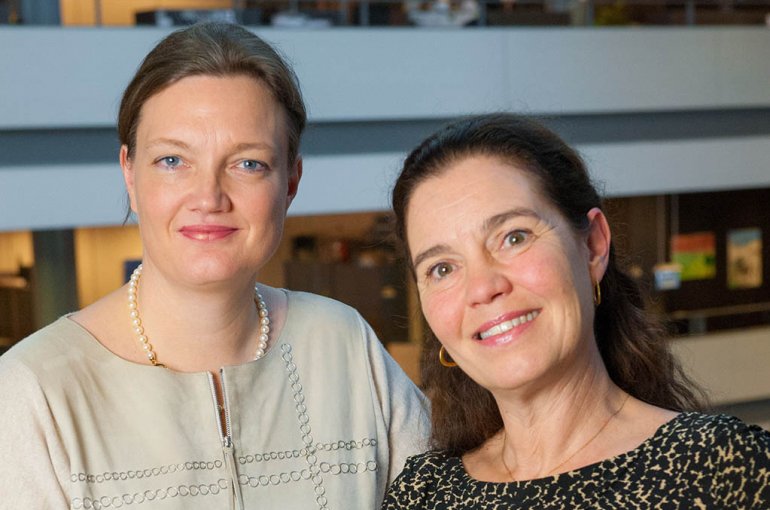Utrecht leads European research into difficult-to-treat childhood asthma
Project Leader Anke-Hilse Maitland-van der Zee

A European project for research into difficult-to-treat childhood asthma submitted by Utrecht University’s Dr. Anke-Hilse Maitland-van der Zee and Dr. Aletta Kraneveld has been honoured with a grant of almost € 1 million. The research will be conducted in close collaboration with scientists from England, Germany, Spain and Slovenia. Over the past few years, it has become clear that different biomarkers, such as variations in DNA, may predict susceptibility to difficult-to-treat asthma in children. In this project, biomarkers in various samples (saliva, blood, exhaled air and faeces) will be combined with patient characteristics to study in more detail and at different levels the characteristics of children who do not react well to standard asthma therapy.
Asthma occurs in six out of 100 children, and 10 percent retain serious medical symptoms even after medication. Previous research conducted by Dr. Anke-Hilse Maitland-van der Zee and her colleagues has shown that children who suffer from serious asthma attacks despite the use of medication are more likely to have certain variations in their DNA.. “However, this is not the only thing that is important” according to Maitland-van der Zee. “Asthma has a genetic component, but environmental factors also play a role in its development. For example, you can see the effects of breast feeding or growing up on a farm in the child’s immune system. And the composition and activity of the child’s gut flora microbiome also plays an important role.”
200 children
Maitland-van der Zee and her colleagues will therefore conduct a study of all of the variation in the genome (DNA), epigenome (methylation of DNA), transcriptome (RNA, which provides information on how the DNA is read), microbiome (the DNA of bacteria) and breathome (variation in components of exhaled air) for 200 children in five countries in relation to how their asthma responds to treatment. During the first phase with 100 children, the researchers will examine all markers in these different layers of information, and during the second phase they will zoom in on the most promising biomarkers. “These biomarkers will provide information about the way a child will react to asthma therapy, and we expect to be able to predict the type of asthma with a greater degree of accuracy. Moreover, we hope to find indications that will lead to better treatment for children who currently suffer from serious symptoms despite their medication.”
Personalized medicine
Maitland-van der Zee is specialised in research into ‘personalized medicine’: medications that take the individual differences between patients into consideration. To that end, it is essential that physicians can accurately determine the differences between the patients. Kraneveld is an expert in the field of chronic diseases and the microbiome of the intestines. “Our collaboration is a new step in the field of Pharmaceutical Sciences in order to combine fundamental and clinical research. This is invaluable for applying the results of research into new therapies for patients” explains Kraneveld.
SysPharmPediA
The project, ‘SysPharmPediA: Systems pharmacology approach to difficult-to-treat pediatric asthma’, will start in March 2016 and will continue for three years. The grant is part of the H2020-programme ERACoSysMed and is financed in part by ZonMw and the research financiers from the other participating countries.
Life Sciences
This research project is an example of ‘Public Health’, part of Utrecht University’s strategic research theme Life Sciences.

